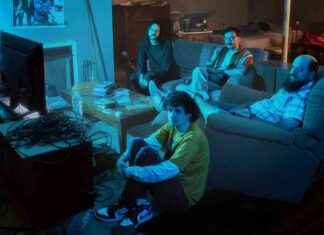If it were not for the fact that the political news – Catalan and Spanish – is dominated by the investiture of the next president of the government and the negotiations on a possible amnesty, the general policy debate taking place in the Parliament would have been practically a carbon copy of the one held a year ago, at least in the examination made by the main opposition parties of the “triumphalist” action of the Government of Pere Aragonès.
But these days – and those to come – the amnesty swallows everything, so the head of the opposition, Salvador Illa, and the president of the En Comú Podem group, Jéssica Albiach, yesterday combined criticism about the “lack of direction” of the Catalan Executive with more or less explicit references to the single issue. They did it to highlight the persistent disputes between the pro-independence parties and warn them of the inconvenience of transferring to the negotiation on the investiture a “race to see who has the most prominence and who appears best in the photo.”
Without mentioning the amnesty, Illa admitted that “the political situation” is an “opportunity,” but demanded that the president “think first about the country, about coexistence,” and abandon “the urgencies and haste.” In clear reference to Aragonès’ demand to take advantage of Pedro Sánchez’s investiture to set the conditions for a referendum, the PSC leader advised him “not to take shortcuts” or “throw the house out the window, because perhaps new ones will come later.” tenants and some furniture we have to leave.”
The socialists do not present any proposal for a resolution on the amnesty. They propose “moving forward with dialogue on the path of reunion and within the Constitution”, and focus on issues such as health, education, renewable energy, infrastructure or the management of Catalan public media. Unlike the commons, which registered several yesterday with the aim of seducing the pro-independence parties.
In his speech in the plenary session of the Parliament, Albiach demanded that the president agree on “the Catalan agenda” to negotiate the investiture of the next government, and admonished the president for having taken the agreement on the amnesty for granted: “It would be good not to take things for granted. made. It would be good not to speak on behalf of others and it would be even better not to turn the negotiations into either a race or a competition,” he suggested.
The opposition’s criticism of loneliness and the lack of government action by the ERC Cabinet was unanimous. Illa had an impact on that loneliness and lack of stable support. “Catalonia does not fail, the Government fails,” which is “installed in routine,” and presiding over the Generalitat “cannot be a routine, it has to be passionate, generate a little energy,” he instructed. And the fundamental cause of this apathy is that “you go alone,” he reproached the president, when “neither the strength of your government, nor the parliamentary strength, nor the difficulty of the moment are enough to go alone.”
Even so, the leader of the PSC once again extended his hand to reach agreements for the remainder of the legislature, to approve a new program contract for the Catalan public media and especially for the next budgets of the Generalitat. An offer that also came to the president from Albiach: “We are where we always are, willing to negotiate,” he assured, but warned him of the temptation to extend the current accounts because “it would be great irresponsibility.”
Albiach called on Aragonès to “demonstrate that what started badly can end minimally well”, demonstrating “vision, ambition, coherence” and, in the remainder of his term, that “this is not a procedural legislature”.
Beyond thanking Illa and Albiach for their tone, the president refuted them by listing the policies promoted by the Government, which in his opinion cannot be considered “in process”, and appealing to the need for Catalonia to have all the financing resources possible, an argument that helped him defend independence for Catalonia.








